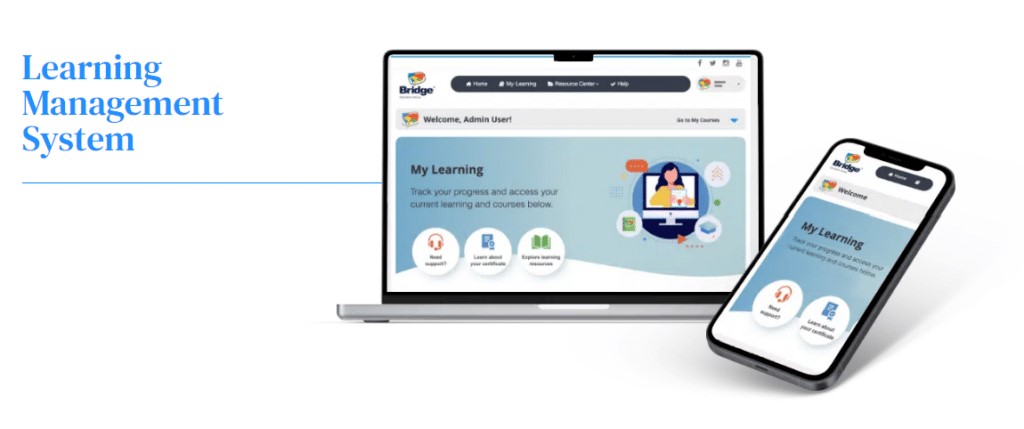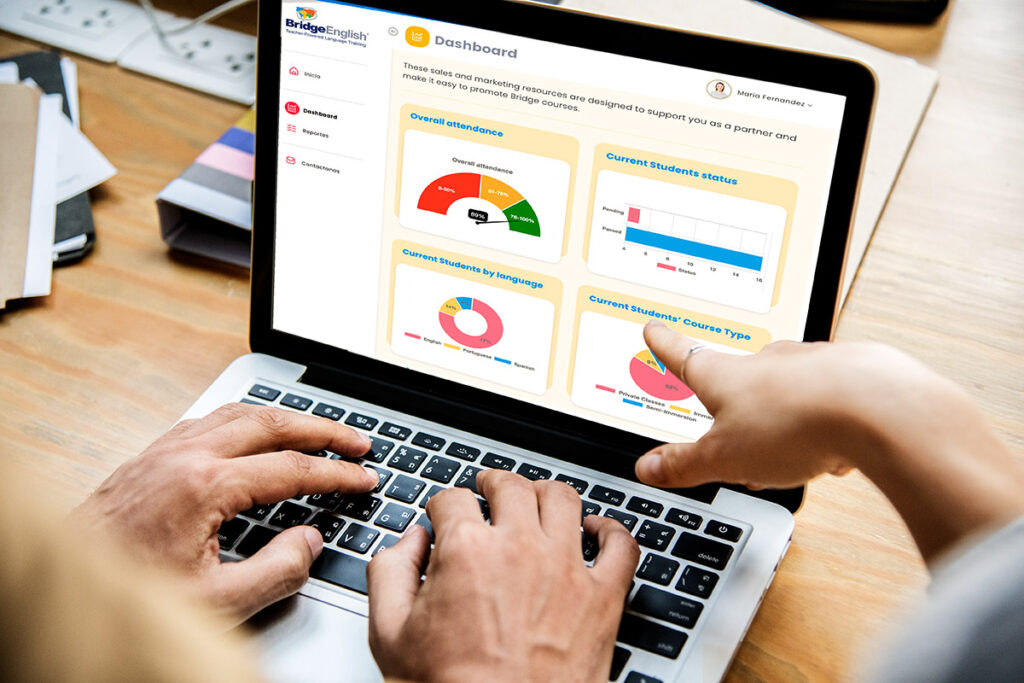From immersive experiences to micro-learning through apps, the Information Age has radically changed how employees take Business English or English for Specific Purposes (ESP) courses. With the myriad of tool suites and eLearning platforms available, teachers and students alike can tailor their educational experience. We’ve taken a look at the eight most popular eLearning and LMS platforms on the web and identified which features are essential for professionals learning a new language. Here are the five essential eLearning platform features for Business English students.
Ease of use
Employees engaged in a language program are juggling professional responsibilities with language learning. To ensure a streamlined process, the most important feature of any eLearning or Learning Management System (LMS) platform is its ease of use. A simple, intuitive interface will ensure that students are able to access materials and leverage the features that teachers or education groups are paying for.
Some questions to consider when evaluating a platform’s ease of use are:
- Is it intuitive?
- Does it function well on a cell phone or tablet?
- Does it require any specific plug-ins or operating systems?
- Is the LMS available to use worldwide?
Other stakeholders should also be taken into consideration when selecting an eLearning platform.

Learn about Bridge’s flexible, personalized, and relevant language programs.
Video capability
Engagement is important for any language learner. Video capability is an important eLearning platform feature for any English language learner, providing students with the tool to connect with the teacher and peers. For students of Business English, video capability is essential, as it provides opportunities for practice speaking and listening as well as Business English conversations and presentations that mimic job-specific duties.
There are numerous free video conferencing services such as Zoom, Skype, and Google Meet. Some of these platforms take their product offering to the next level with conferencing options specifically for teaching. Google Classroom, for example, is one of the most popular teaching suites for online English learning. It combines video conferencing with other Google tools like Sheets, Docs, and Drive.
Corporate language program providers typically use an LMS with video conferencing built into the platform. Bridge’s custom platform is a Moodle-based LMS which integrates via APIs and single-sign-on. Video conferencing features are accompanied by a scheduling platform, MyEnglishLab (interactive activities and tests integrated into courses), online testing, and more.
Cloud storage
Cloud storage allows students and instructors to access the latest resources and materials anytime, anywhere. Version control is no longer an issue that has to plague online learners; with simple access permissions and visible version history document control has never been easier.
Cloud storage also allows students and instructors to collaborate on curriculum materials, providing Business English learners opportunities to not only engage in active learning with instructors but to also practice collaborative job-specific tasks relevant to their language goals. From uploading study guides and sharing free resources to group projects, a document repository is a critical feature for any eLearning environment.

Streamlined communication
A significant challenge to online learning is the time lag and errors caused by virtual communication. An essential function of a corporate English language program LMS is options to optimize communication between stakeholders. Instructors, students, and management teams need to be able to communicate quickly and easily. Some helpful communication features on eLearning platforms include:
- Class and teacher scheduling
- Reporting and billing
- Access to all learning resources
- Direct messaging and message board
Each platform has a unique approach to communication for conferencing, messaging, submitting assignments, and reporting issues. Choosing the ideal LMS requires an analysis of student skill levels, expected teaching methodology, and classroom management requirements.
Learn about effective learning methodologies that support Business English and ESP students.
Learning analytics and data
A key component of any effective corporate language program is access to learning analytics and data. Bridge’s Language Proficiency Indicators (LPIs) provide detailed learning analytics and data, tracking everything from student attendance to test scores. Access to up-to-date data on students’ progress, program satisfaction, CEFR levels, and more provides critical information to both students and program sponsors. Regardless of which platform is being used, data analytics provide a secure and reliable means of helping students reach their learning goals.

If you are considering instituting a language program, consider these essential features of an LMS to ensure your program is successful. Courses should be user-friendly and easily accessible, with video conferencing capabilities. Cloud storage ensures documents are accessible from anywhere and provides opportunities for collaboration. Communication features should be easy to access and feature direct and group discussion features. Lastly, up-to-date learning analytics and program data should feature detailed reports to support both student learning and motivation and program oversight.







